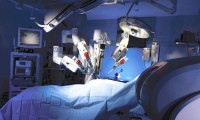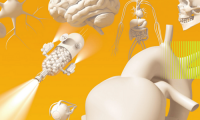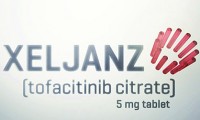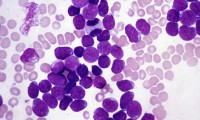-
3D-Printed Implant Fuses With Bone To Repair Broken Limbs
- Source: orthofeed
- 1,216
- December 22, 2017
-
Sensor-enhanced surgical robot enables highly precise and safe spinal operations
- Source: medicalxpress
- 785
- December 22, 2017
-
Tessa Therapeutics Closes USD 80 Million Financing Round Led by Temasek
- Source: Prnewswire
- 928
- December 22, 2017
-
Marital Status and Outcomes in Patients With Cardiovascular Disease
- Source: drugdu
- 642
- December 22, 2017
-
What Happens When You Get Pregnant In Your 20s, 30s, 40s
- Source: msn
- 593
- December 22, 2017
-
Edible Battery To Power Internal Medical Devices
- Source: popsci
- 813
- December 21, 2017
-
The Top 3 Digital Health Trends to Watch In 2018
- Source: fortune
- 806
- December 21, 2017
-
Pfizer Announces FDA Approval of XELJANZ (tofacitinib) and XELJANZ XR for the Treatment of Active Psoriatic Arthritis
- Source: Pfizer
- 880
- December 21, 2017
-
Triple drug treatment combo shows promise in adult leukemia
- Source: medical-newspaper
- 770
- December 21, 2017
your submission has already been received.
OK
Subscribe
Please enter a valid Email address!
Submit
The most relevant industry news & insight will be sent to you every two weeks.













